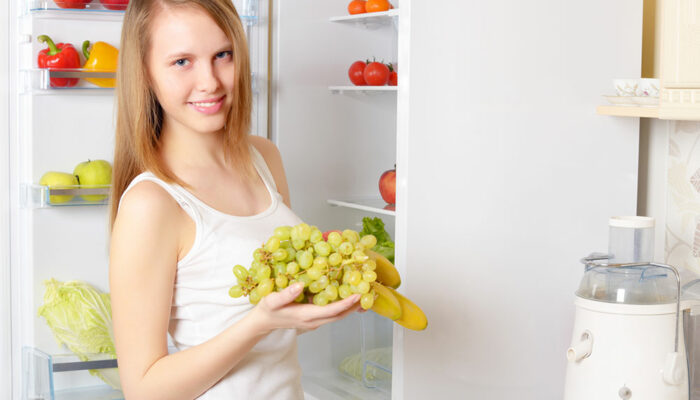
A Guide To Storing Vegetables for Freshness
With the convenience of supermarkets, doorstep delivery, farmer’s markets, and, most importantly, the refrigerator, most of us buy vegetables and fruits for a week or fortnight and stock them. Keeping in mind some safety and storage tips for refrigerating food is very important to prevent food from getting spoilt or contaminated. Here are some easy tips to store vegetables and fruits so that they do not perish and are safe for consumption:
- Leafy greens
Once you buy leafy greens like spinach, bok choy, kale, or lettuce, rinse them before wrapping them in a paper towel and sealing them in a zip lock bag. You can also layer them between paper towels and store them in a wide container or box. - Asparagus
Trim the bottom of the stalk and wrap them in a damp paper or place them in a bowl of cold water and put them in the refrigerator. Change the water if you notice any color change, and trim the bottom ends once again before cooking. Asparagus has to be refrigerated for it to last for 3-4 days and cannot be stored at room temperature. - Bell peppers
Store these in a sealed plastic cover and ensure that they do not become moist. Even a little moisture can cause the peppers to rot, but following proper safety and storage tips for refrigerating ensures that they stay fresh for about 2 weeks. - Whole vegetables
Vegetables like carrots, beans, cabbage, corn, cucumber, zucchini, and squash can be packed individually in plastic bags, and individual florets can be removed from cauliflower and stored in a plastic bag. Ensure that you do not put two different vegetables in the same cover.
Vegetables like tomatoes, potatoes, and onions can be stored in a dark and airy place and do not need refrigeration. - Beans
They can be rinsed, patted dry, and stored in a plastic bag. - Broccoli
It can be washed and stored in paper towels to remove excess moisture as it can cause mold. Another important safety and storage tip for refrigerating this food is to not seal it in a cover and use it within 2 to 3 days as it spoils quickly. - Brussels sprouts
Brussels sprouts can be fresh for about 5 days. If the sprouts are loose, you can store them in a container, and you can store them as a whole if packaged. - Mushrooms
Remove moisture from mushrooms and wrap them in paper towels before storing them.
If you are not planning to use the vegetables immediately, you can also freeze them. However, you must blanch the vegetables before freezing them. At the same time, some vegetables like eggplant, artichokes, radishes, and sweet potatoes cannot be frozen.
Canned food and vegetables can be stored for about 2 years by following the correct safety and storage tips for refrigerating them. Ensure that you keep them closed tight to avoid contact with moisture and discard them if they have passed the use-by date specified on the carton or can.



